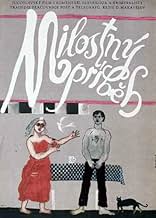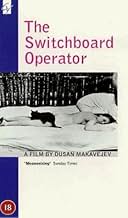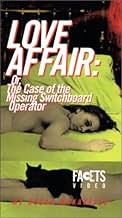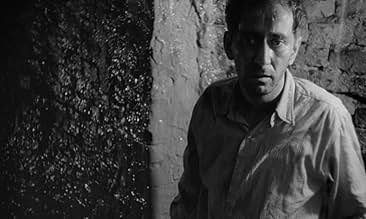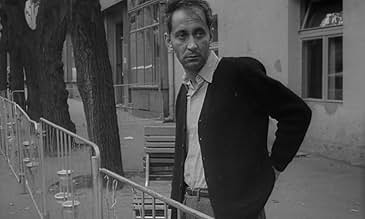IMDb रेटिंग
7.3/10
2 हज़ार
आपकी रेटिंग
अपनी भाषा में प्लॉट जोड़ेंA young female starts a love relationship with a serious young man. However, while he is away on business, she gets lonely and succumbs to her colleague's desires.A young female starts a love relationship with a serious young man. However, while he is away on business, she gets lonely and succumbs to her colleague's desires.A young female starts a love relationship with a serious young man. However, while he is away on business, she gets lonely and succumbs to her colleague's desires.
- निर्देशक
- लेखक
- स्टार
Aleksander Kostic
- Ekspert za seksualna pitanja
- (as Dr Aleksandar Dj Kostic)
Zivojin Aleksic
- Ekspert za kriminalistiku
- (as Dr Zivojin L Aleksic)
Dragan Obradovic
- Obducent
- (as Dr Dragan Obradovic)
फ़ीचर्ड समीक्षाएं
Dusan Makavejev is probably not a name that most people will recognize, but film buffs should. In the late '60s he was part of a wave of Yugoslav filmmakers who changed the face of that country's cinema (much like Mike Nichols in the US) in what got called the Black Wave. Since lots of people in the US only learned of Yugoslavia from the horrors of the 1990s war in Bosnia, it might surprise them that the country had a thriving film industry for a long time.
Anyway, Makavejev's "Ljubavni slucaj ili tragedija sluzbenice P. T. T." ("Love Affair, or the Case of the Missing Switchboard Operator" in English) tells of a romance between a switchboard operator and a sanitation inspector. I figure that the movie must've been hard to make, given some of the explicit scenes. But more important is the point that the movie makes about relationships, and it doesn't hold back.
Like "Carnal Knowledge" and "Portnoy's Complaint", this movie shows that relationships are bound to come with complications. I recommend it to everyone.
Anyway, Makavejev's "Ljubavni slucaj ili tragedija sluzbenice P. T. T." ("Love Affair, or the Case of the Missing Switchboard Operator" in English) tells of a romance between a switchboard operator and a sanitation inspector. I figure that the movie must've been hard to make, given some of the explicit scenes. But more important is the point that the movie makes about relationships, and it doesn't hold back.
Like "Carnal Knowledge" and "Portnoy's Complaint", this movie shows that relationships are bound to come with complications. I recommend it to everyone.
What I enjoyed most about this inexplicable Yugoslavian film was the source of pleasure in watching a movie filmed on grainy, imprecise celluloid stock. Every scene hums with that lovely old-fashioned atmosphere of maddeningly strenuous traditional film-making. We can sense the boom mikes, the film reel, the guys with big, uncomfortable headphones, and the director with a big vision that frustrates him by communication breakdown, as the outcome of his film is a bewilderingly ambiguous celluloid mishmash of sex, young lovers, totalitarian Yugoslavia, and nonlinear narrative structure.
And as such, it is a joy! It splurges and has fun! In one hour and nine minutes, its main thread, concerning a Hungarian switchboard operator who meets and falls in love with a Muslim who soon moves into her apartment much to the jealous chagrin of an imposing postal worker, intruding some touching intercuts of archive footage that give impressions of lives ensnared in totalitarian society, a brief history of how the gray rat infested Europe, and a sexologist in his study talking about the history of sex. Even the central train of thought is deconstructed into ambiguity as, seemingly at the same time, the police are investigating the drowning of a young woman.
Director Dusan Makavejev seems to have simply made a multi-faceted montage of Yugoslavia and reflections based on its time, 1967. In spite of its self-indulgence, as was a common limitation of progressive European art-house films of the time, it is very enjoyable.
And as such, it is a joy! It splurges and has fun! In one hour and nine minutes, its main thread, concerning a Hungarian switchboard operator who meets and falls in love with a Muslim who soon moves into her apartment much to the jealous chagrin of an imposing postal worker, intruding some touching intercuts of archive footage that give impressions of lives ensnared in totalitarian society, a brief history of how the gray rat infested Europe, and a sexologist in his study talking about the history of sex. Even the central train of thought is deconstructed into ambiguity as, seemingly at the same time, the police are investigating the drowning of a young woman.
Director Dusan Makavejev seems to have simply made a multi-faceted montage of Yugoslavia and reflections based on its time, 1967. In spite of its self-indulgence, as was a common limitation of progressive European art-house films of the time, it is very enjoyable.
Early on in his wildly experimental career, Dusan Makavejev was proving himself to be one of world cinema's most unique talents. With his brilliant, genre bending masterpiece "Love Affair", he crafts a simplistic, beautiful, and devastating portrait of one of film history's most tragic romances. Of course, Makavejev's vision is not limited by the boundaries of conventional storytelling and tone. Spliced in between the romantic tragicomedy are interviews with a sexologist and a criminologist, as well as various bits of stock footage depicting Yugoslavian politics.
This often weird and humorous version of a brutally sad tale is among my new favorite films thanks to its entertainment value, stunningly unique vision, wild sense of humor, and strong emotional impact. Makavejev pulls no punches, he allows the tragedy to burst in a chaotic explosion of tears, refusing to hold back. By the end, i was so struck with melancholy that I could hardly believe what I had just witnessed. This is a film that combines so many themes and genres, and yet manages to portray a semi-tradition story that anyone can follow. Sprinkling bits and pieces of the charmingly surreal and avant garde all over this saddening love story, Makavejev forms one of the finest, most unfortunately underrated and obscure cinematic romances of all time.
This often weird and humorous version of a brutally sad tale is among my new favorite films thanks to its entertainment value, stunningly unique vision, wild sense of humor, and strong emotional impact. Makavejev pulls no punches, he allows the tragedy to burst in a chaotic explosion of tears, refusing to hold back. By the end, i was so struck with melancholy that I could hardly believe what I had just witnessed. This is a film that combines so many themes and genres, and yet manages to portray a semi-tradition story that anyone can follow. Sprinkling bits and pieces of the charmingly surreal and avant garde all over this saddening love story, Makavejev forms one of the finest, most unfortunately underrated and obscure cinematic romances of all time.
Film for me is a matter of apprehension, of temporal experience of who you are relative to what is playing before you. So I don't care about a historicist or cinematic scholarly approach to films, in that film (and history) by itself is nothing, a carved artifact. This is my way of saying that there are probably several reasons to find this interesting, as token of 60s Yugoslav mores and 60s New Wave, admire the technique, which is wonderful in its freedom and placing. But for me, none of that matters when it doesn't enliven me.
A sexologist opens the film by humorously explaining the hidden omnipresence of sex in all we do, establishing the essence of the film as something to be secretly whispered and discovered.
The film follows a relationship between a rat exterminator and a blonde switchboard operator around Belgrade, the ups and downs. Salad days, captured with deliberate languidness. Eventually, there is betrayal and tragedy.
The point seems to be, contrasted levels of apprehension: everyday life in the affair in its dullness, small joy and unpredictability, with the system that frames that life as story, attempting to explain: 'experts' lecture on various topics, polemic footage of revolution play in ironic celebration, histories are recounted in voice-over. But you'll note, for instance, that the sexologist makes up nearly everything he says: Rembrandt did not paint sex, Mesopotamian priests did not sit ontop of a phallic column for days. The same fabrication then extends in the footage of joyous communist parades, a similarly subversive ploy is found in the silent Mr. West in the Land of the Bolsheviks.
But it's a weird, incongruent alignment of cycles that fails and fails to build for an hour. One hour felt like two. A big reason seems to be that this sort of bare observation was fresh at the time, but overly familiar now so all the vitality has been zapped out.
It just wastes what could have been a tremendously powerful last scene, where so much of what we see could be toyed with as different levels of involved understanding: a murder has been set up early in the film, but we don't know it's going to feature in the story, the different levels are that suddenly we are aware of what's coming (the murder), unexpectedly what we find out (that it was an accident), and what were the human emotional dynamics (regret and despair, not hate). Imagine the richness..
A sexologist opens the film by humorously explaining the hidden omnipresence of sex in all we do, establishing the essence of the film as something to be secretly whispered and discovered.
The film follows a relationship between a rat exterminator and a blonde switchboard operator around Belgrade, the ups and downs. Salad days, captured with deliberate languidness. Eventually, there is betrayal and tragedy.
The point seems to be, contrasted levels of apprehension: everyday life in the affair in its dullness, small joy and unpredictability, with the system that frames that life as story, attempting to explain: 'experts' lecture on various topics, polemic footage of revolution play in ironic celebration, histories are recounted in voice-over. But you'll note, for instance, that the sexologist makes up nearly everything he says: Rembrandt did not paint sex, Mesopotamian priests did not sit ontop of a phallic column for days. The same fabrication then extends in the footage of joyous communist parades, a similarly subversive ploy is found in the silent Mr. West in the Land of the Bolsheviks.
But it's a weird, incongruent alignment of cycles that fails and fails to build for an hour. One hour felt like two. A big reason seems to be that this sort of bare observation was fresh at the time, but overly familiar now so all the vitality has been zapped out.
It just wastes what could have been a tremendously powerful last scene, where so much of what we see could be toyed with as different levels of involved understanding: a murder has been set up early in the film, but we don't know it's going to feature in the story, the different levels are that suddenly we are aware of what's coming (the murder), unexpectedly what we find out (that it was an accident), and what were the human emotional dynamics (regret and despair, not hate). Imagine the richness..
(1967) Love Affair; Or the Case of the Missing Switchboard Operator/ Ljubavni slucaj ili tragedija sluzbenice
(In Yugoslavia with English subtitles)
DRAMA
Co-written and directed by Dusan Makavejev with an examination between Izabela, (Eva Rass) the telephone operator living in a crummy apartment and meeting with Ahmed (Slobodan Aligrudic) a sanitation inspektor fall in love with one another leading to one thing after another. The title of the movie says it all that does a good job of examining the relationship without succeeding to point out it's turning point. I'd love to hear what the culprit had to say as it ends on that unsatisfying note.
Co-written and directed by Dusan Makavejev with an examination between Izabela, (Eva Rass) the telephone operator living in a crummy apartment and meeting with Ahmed (Slobodan Aligrudic) a sanitation inspektor fall in love with one another leading to one thing after another. The title of the movie says it all that does a good job of examining the relationship without succeeding to point out it's turning point. I'd love to hear what the culprit had to say as it ends on that unsatisfying note.
क्या आपको पता है
- ट्रिवियाThe film was initially refused a UK certificate by the BBFC owing to shots of pubic hair, though the distributor himself partly ruined its chances by ignoring the film's creative aspects and instead telling censor John Trevelyan "I am sending you a film with a few tits in it. I don't think much of it but I can sell it to the sex theaters". It was eventually passed with minor cuts in 1969 and released fully uncut on video in 1996.
- कनेक्शनFeatured in Zabranjeni bez zabrane (2007)
टॉप पसंद
रेटिंग देने के लिए साइन-इन करें और वैयक्तिकृत सुझावों के लिए वॉचलिस्ट करें
- How long is Love Affair, or The Case of the Missing Switchboard Operator?Alexa द्वारा संचालित
विवरण
- रिलीज़ की तारीख़
- कंट्री ऑफ़ ओरिजिन
- भाषाएं
- इस रूप में भी जाना जाता है
- Love Affair, or The Case of the Missing Switchboard Operator
- उत्पादन कंपनी
- IMDbPro पर और कंपनी क्रेडिट देखें
- चलने की अवधि
- 1 घं 19 मि(79 min)
- रंग
- ध्वनि मिश्रण
- पक्ष अनुपात
- 1.66 : 1
इस पेज में योगदान दें
किसी बदलाव का सुझाव दें या अनुपलब्ध कॉन्टेंट जोड़ें

